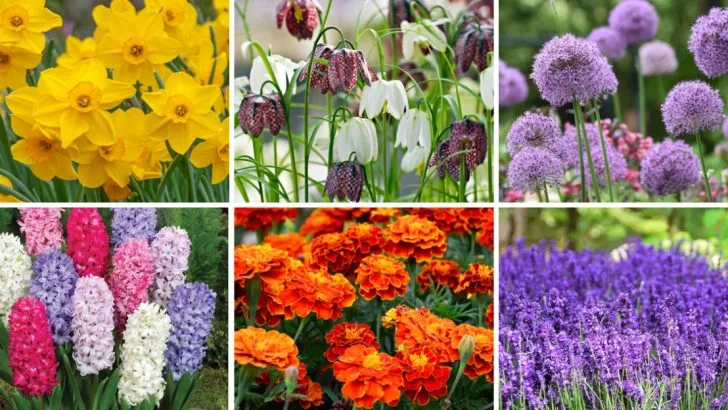Squirrels might be cute—until they start treating your garden like their personal buffet. From digging up bulbs to nibbling on veggies and trampling delicate plants, they can do a surprising amount of damage for such small creatures. If you’ve ever walked outside to find your hard work undone by tiny paws and twitchy tails, you’re not alone.
The good news is, you don’t have to build an electric fence or camp out with a water hose to keep them away. Some plants naturally make squirrels think twice before coming too close. Strong scents, textures they dislike, or just not being worth the effort—all of these can help make your garden a little less squirrel-friendly. Here are 16 plants that can help you reclaim your space without turning it into a fortress.
Daffodils
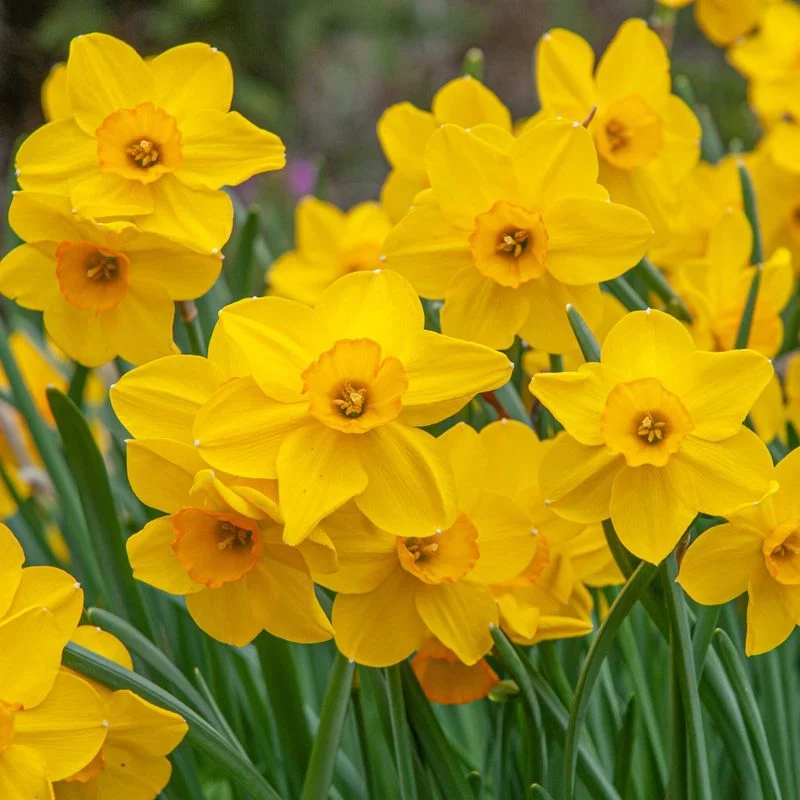
Daffodils are not just a cheerful addition to any garden with their sunny yellow blooms, but they are also a squirrel deterrent. These flowers contain lycorine, a compound that is toxic to squirrels and many other animals, making them steer clear. Plant these vibrant blooms along borders or in clusters to create a visual delight while keeping unwanted visitors at bay. Daffodils are low-maintenance and thrive in well-drained soil, ensuring your garden remains lively and attractive without much effort. Their ability to return each spring makes them a long-term solution for squirrel problems.
Fritillaries
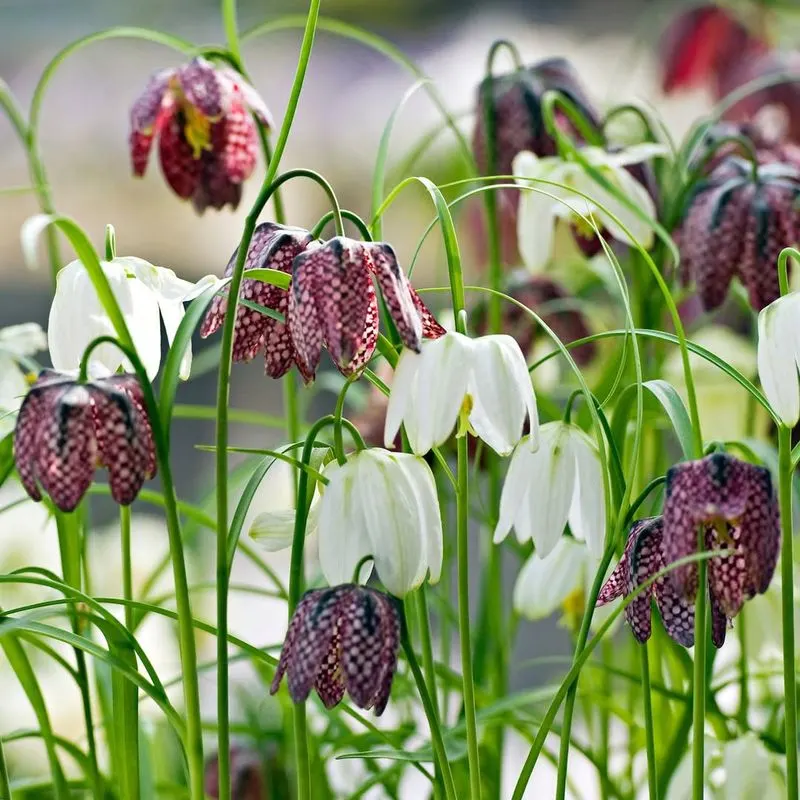
Fritillaries, with their unique checkered petals and bell-shaped blossoms, offer a stunning visual appeal that squirrels dislike. These flowers emit a musky odor due to the presence of imperialine, which naturally repels squirrels. Plant fritillaries in shaded areas of your garden to benefit from their natural pest-repellent properties. A touch of these exotic-looking blooms can transform any garden corner into a delightful escape, all while keeping those garden invaders at a distance. Their varied colors and patterns make them a charming yet functional choice for any gardener.
Alliums
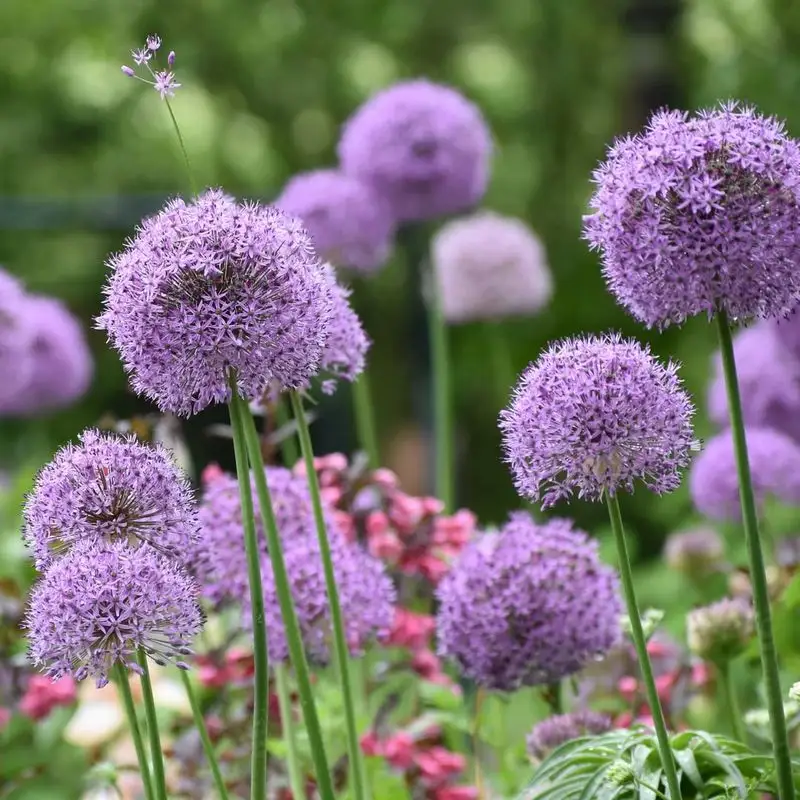
Alliums are a part of the onion family and their pungent smell is something squirrels tend to avoid. With tall, globe-like blossoms in shades of purple, pink, and white, alliums add a whimsical touch to gardens. These flowers are not only squirrel-resistant but also attract pollinators like bees and butterflies, enhancing the biodiversity of your garden. Plant them in sunny spots for the best results. Their hardy nature means they can withstand various weather conditions, making them a reliable choice for maintaining a beautiful and pest-free garden.
Hyacinths
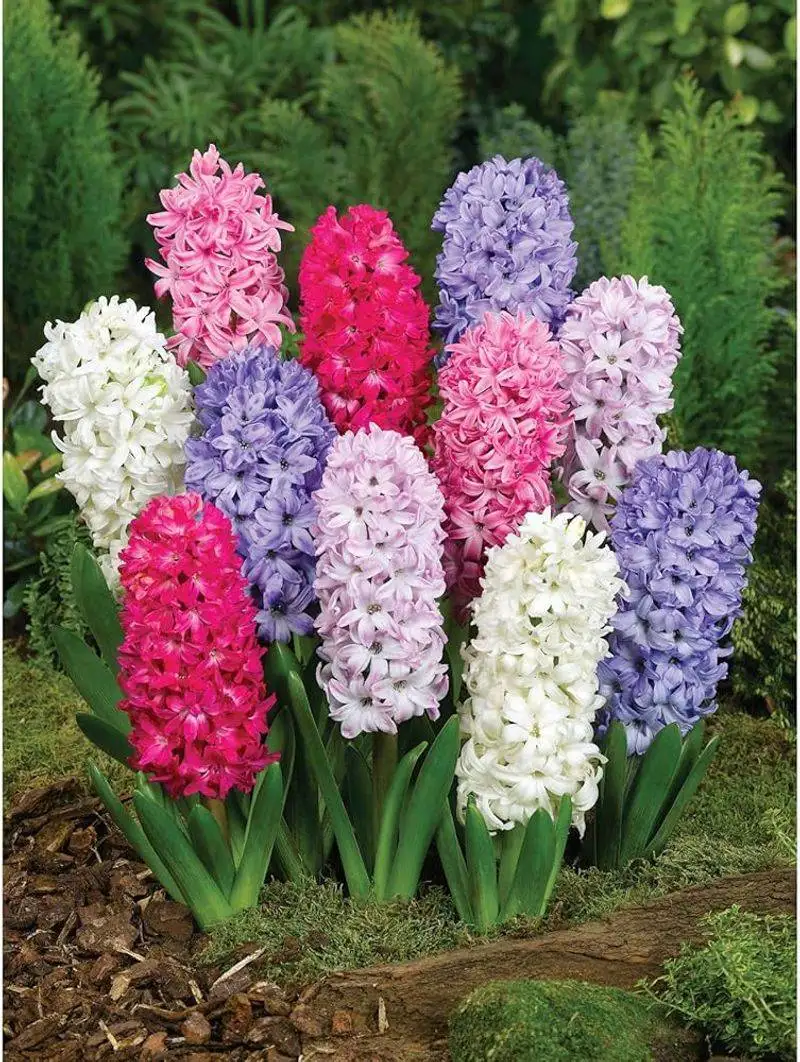
Hyacinths are renowned for their intoxicating fragrance and stunning blue, pink, or white flower spikes. While their scent is delightful to humans, it is off-putting to squirrels, thanks to the alkaloids they contain. Plant these flowers in well-drained soil and enjoy the fragrant blooms that deter squirrels from making your garden their playground. Hyacinths are perfect for adding color and aroma to your space, and their hardy nature makes them easy to care for. As spring heralds their arrival, they become a vibrant indication of warmer days ahead.
Lamb’s Ear
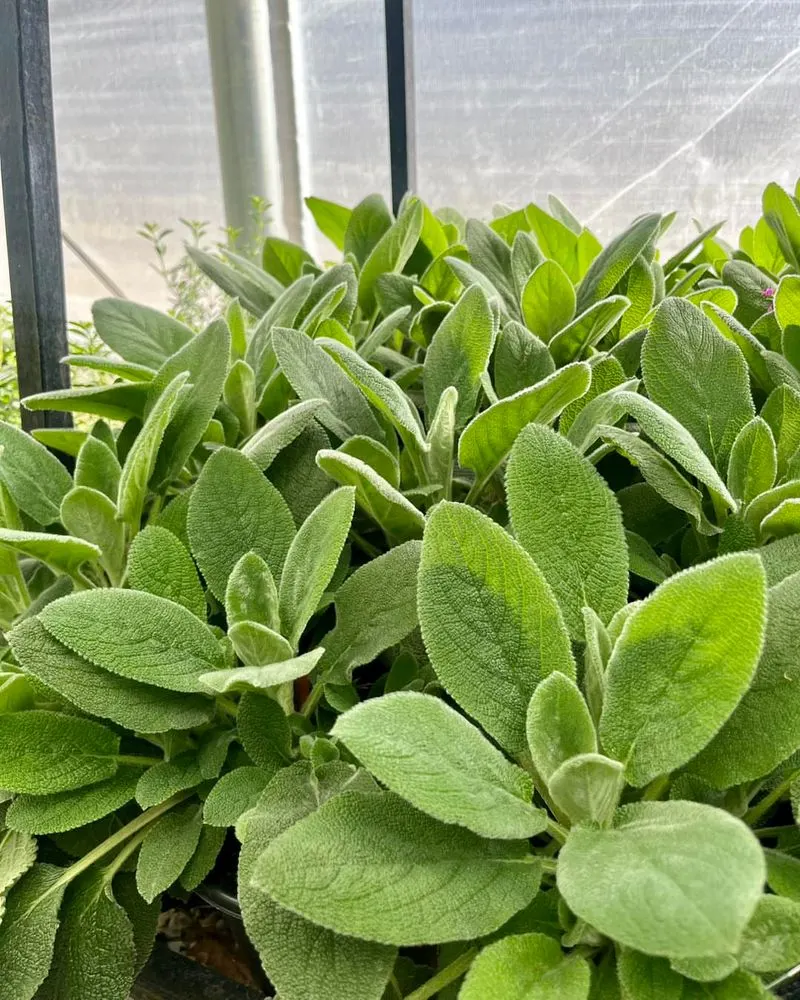
Lamb’s Ear is beloved for its soft, fuzzy leaves that resemble the ears of a lamb, providing a unique texture to garden beds. This perennial is not favored by squirrels, who find the texture unpleasant. Lamb’s Ear thrives in sunny, well-drained areas and is drought-tolerant, making it a low-maintenance choice for gardeners. Its silvery foliage acts as a striking contrast to more colorful blooms and can serve as a ground cover. By incorporating Lamb’s Ear into your garden, you create a natural barrier that discourages squirrels from invading your garden space.
Marigolds
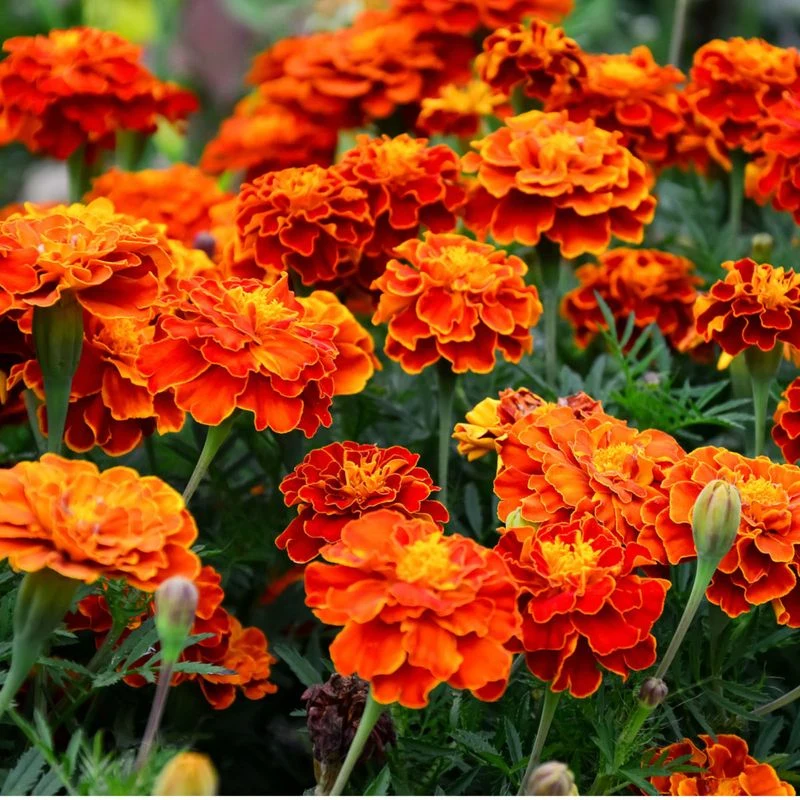
Marigolds are popular annuals cherished for their bright blooms and pest-repellent properties. The strong scent of marigolds is unappealing to squirrels and many other garden pests, making them an excellent choice for a natural deterrent. Plant marigolds along garden borders or interspersed among vegetables to protect your garden’s bounty. Easy to grow and requiring minimal care, these flowers thrive in sunny locations and can bloom throughout the growing season. Their cheerful colors can uplift any garden setting, creating a welcoming but squirrel-free environment for your plants.
Lavender
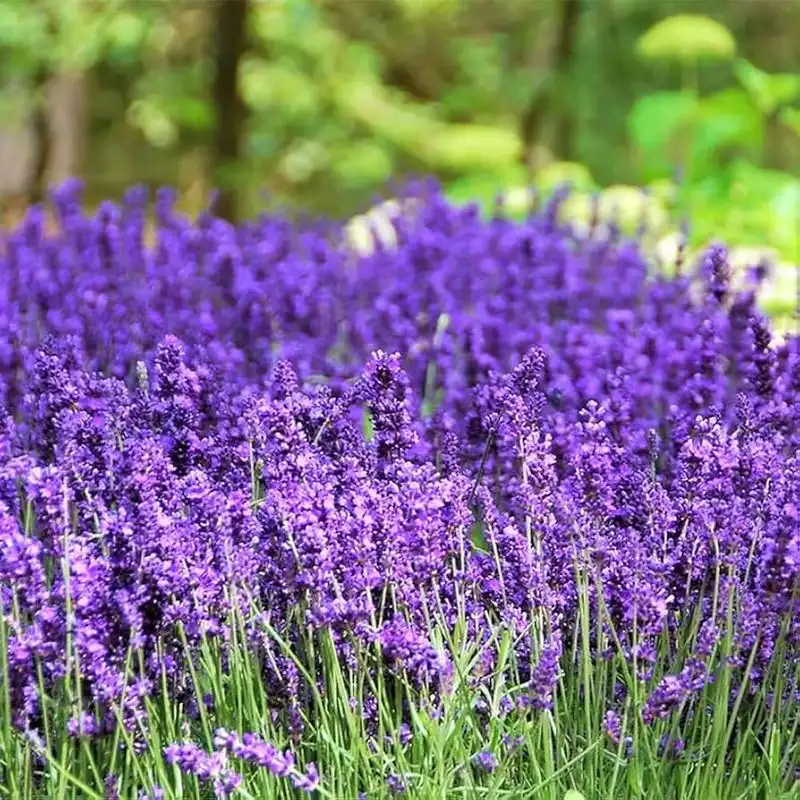
Lavender, with its unmistakable fragrance and soothing purple flowers, is a favorite among gardeners looking to keep squirrels away. The aromatic oils in lavender are pleasant to humans but act as a powerful deterrent to squirrels. Plant lavender in sunny, well-drained areas to create a fragrant border or focal point in your garden. Not only does it repel squirrels, but it also attracts pollinators, promoting a healthy garden ecosystem. Lavender’s perennial nature and low maintenance requirements make it an ideal choice for gardeners seeking both beauty and functionality.
Mint
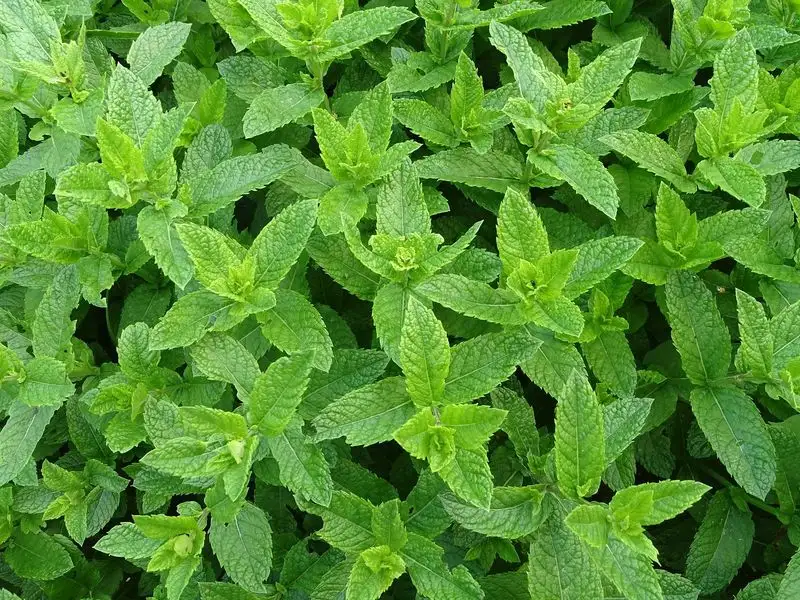
Mint is not just a refreshing herb for culinary use, but also a plant that squirrels dislike due to its strong aroma. Growing mint in your garden can act as a natural squirrel deterrent, while providing you with a versatile herb for the kitchen. It’s best grown in containers to prevent it from becoming invasive, as mint can easily take over garden beds. Its vibrant green leaves and cool scent add a sensory delight to your garden space. Whether used for cooking or as a deterrent, mint offers multiple benefits for gardeners.
Rosemary
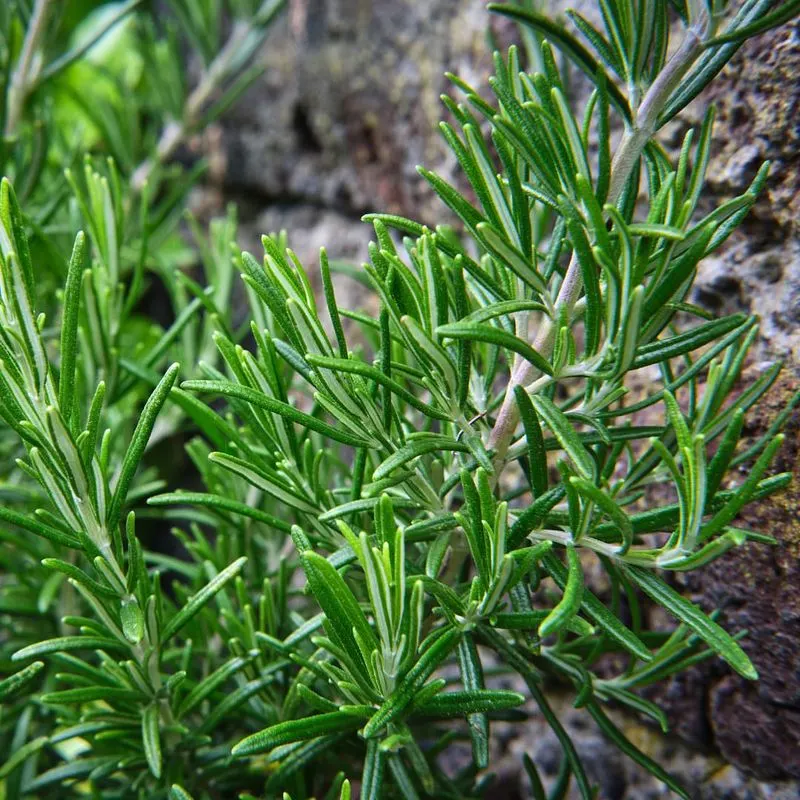
Rosemary is a hardy herb with needle-like leaves and a woody aroma that squirrels find unappealing. This versatile plant is perfect for both culinary use and as a natural pest repellent. Plant rosemary in sunny locations with well-drained soil to create an aromatic hedge or border. Its resilience to drought and pests makes it a low-maintenance option for any garden. Whether you’re using its fragrant leaves in the kitchen or enjoying its evergreen presence in your garden, rosemary is a smart choice for those looking to repel squirrels naturally.
Geraniums
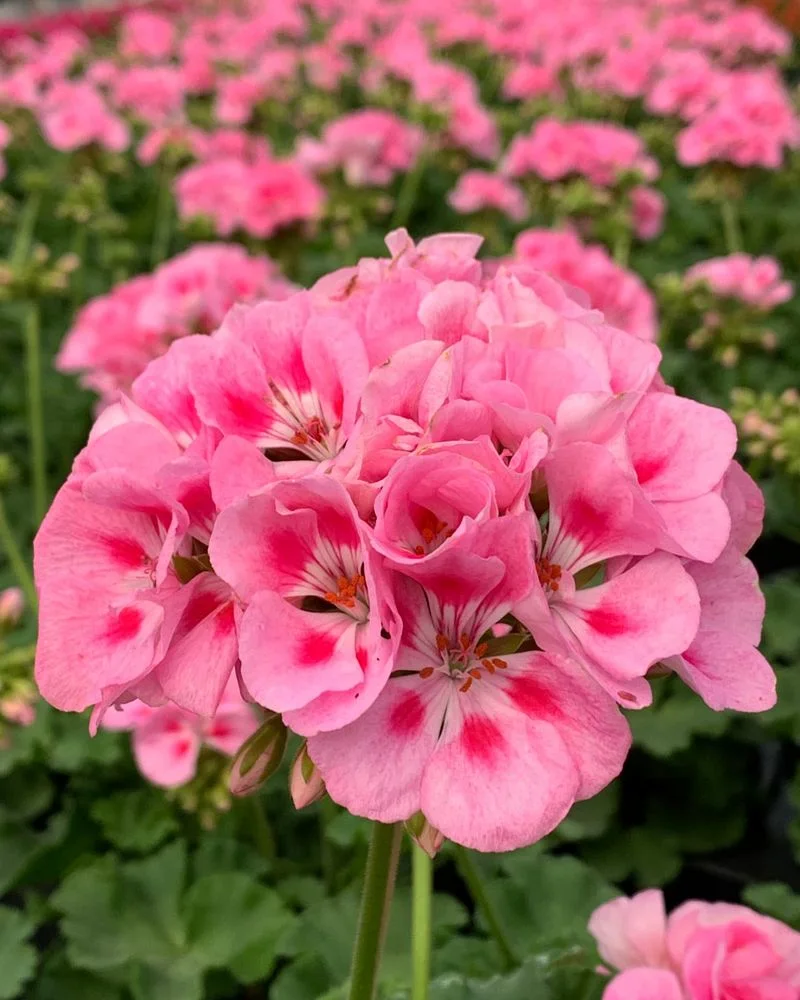
Geraniums are known for their vibrant blooms and ability to repel common garden pests, including squirrels. The strong scent of geraniums is off-putting to these critters, making them a great addition to your garden’s defense strategy. Plant geraniums in pots or flower beds to add a splash of color while keeping pests at bay. These flowers are easy to care for and thrive in sunny conditions, making them a favorite among gardeners. Their long blooming period ensures your garden remains colorful and pest-free throughout the growing season.
Thyme
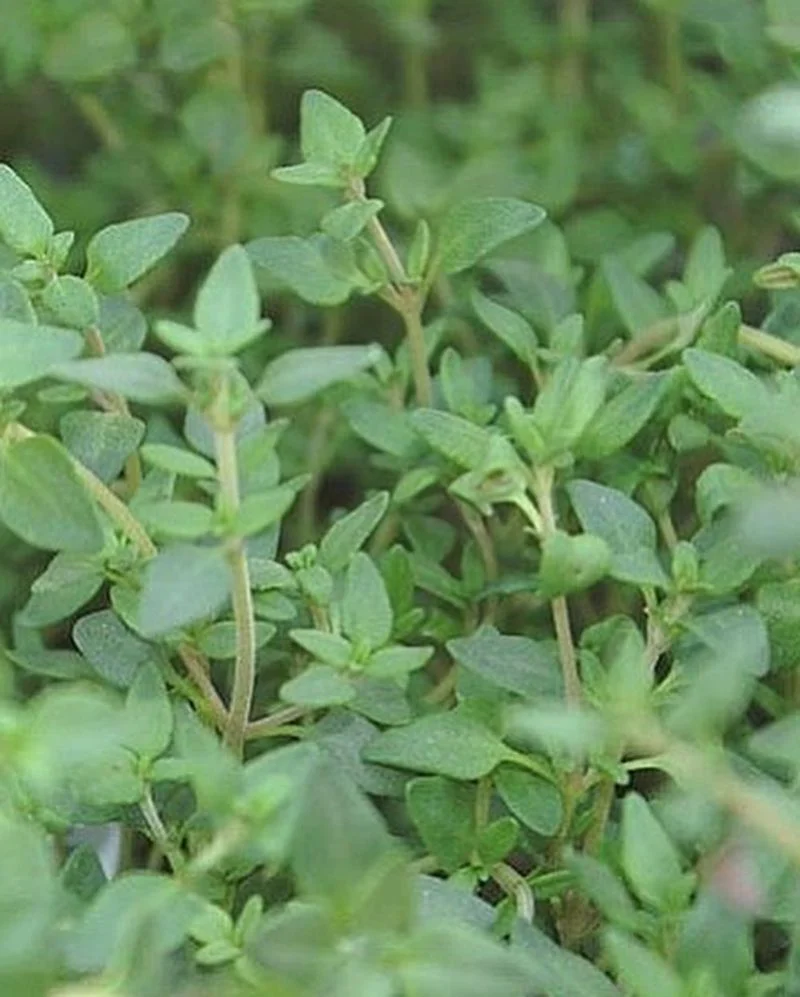
Thyme is a fragrant herb that is not only useful in the kitchen but also effective at deterring squirrels. Its strong scent can be overwhelming to these animals, making it a useful addition to your garden. Plant thyme in sunny, well-drained areas to enjoy its aromatic presence. As a perennial, thyme returns year after year, providing long-lasting protection against pests. Its small purple flowers add a subtle beauty to garden beds and attract beneficial insects, enhancing the overall health of your garden ecosystem. Enjoy its culinary and pest-repelling advantages.
Nasturtiums
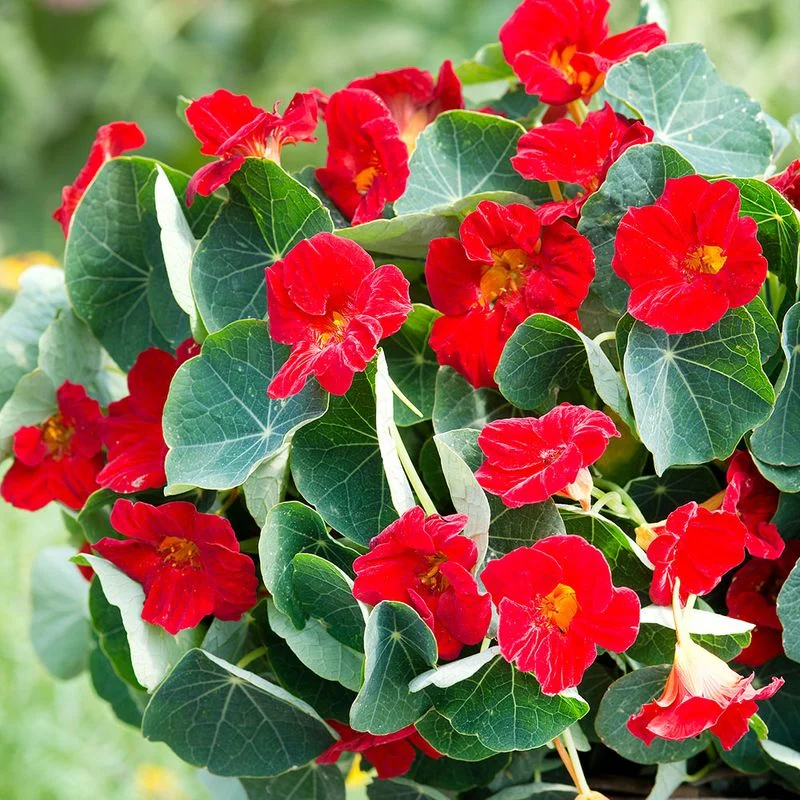
Nasturtiums are a charming addition to any garden with their bright, peppery blooms and round leaves. These flowers are not favored by squirrels, who tend to avoid their pungent aroma. Plant nasturtiums in sunny spots to create a vibrant splash of color that doubles as a natural pest deterrent. Their sprawling nature makes them excellent ground cover, filling in gaps between other plants. Nasturtiums are also edible, adding a unique peppery spice to salads and dishes, making them both a practical and beautiful choice for gardeners.
Sage
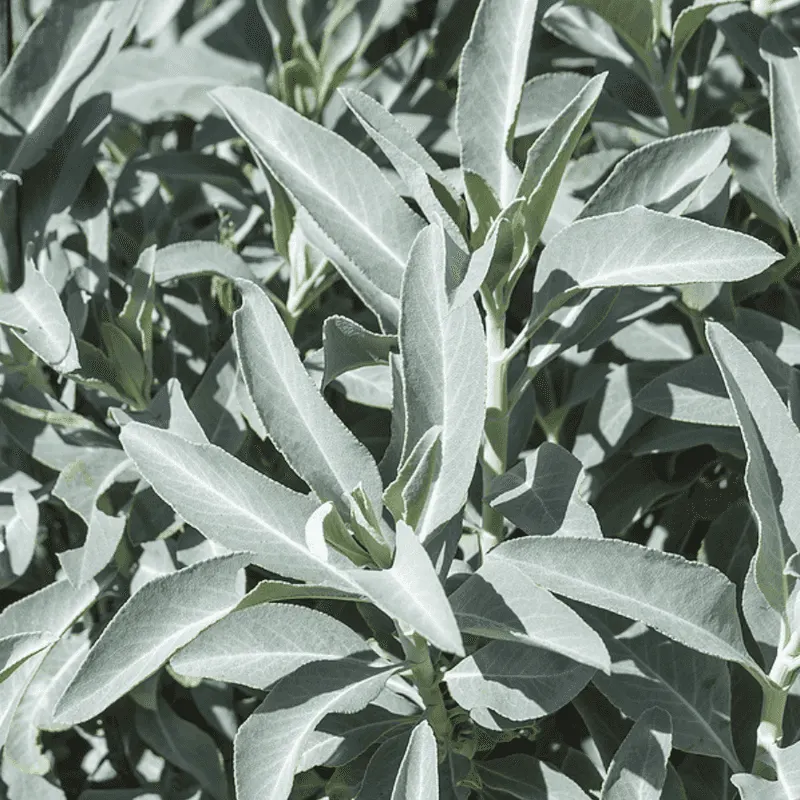
Sage is a versatile herb with a strong, earthy aroma that naturally repels squirrels. Its soft, grayish-green leaves add a subtle color to gardens and are perfect for culinary use. Plant sage in sunny, well-drained areas to benefit from its pest-repelling properties. As a perennial, sage will return each year, providing ongoing protection and a steady supply of leaves for cooking. Its small, purple flowers attract pollinators, supporting a healthy garden ecosystem while deterring unwanted visitors. Sage is a practical and attractive addition to any garden.
Crown Imperials
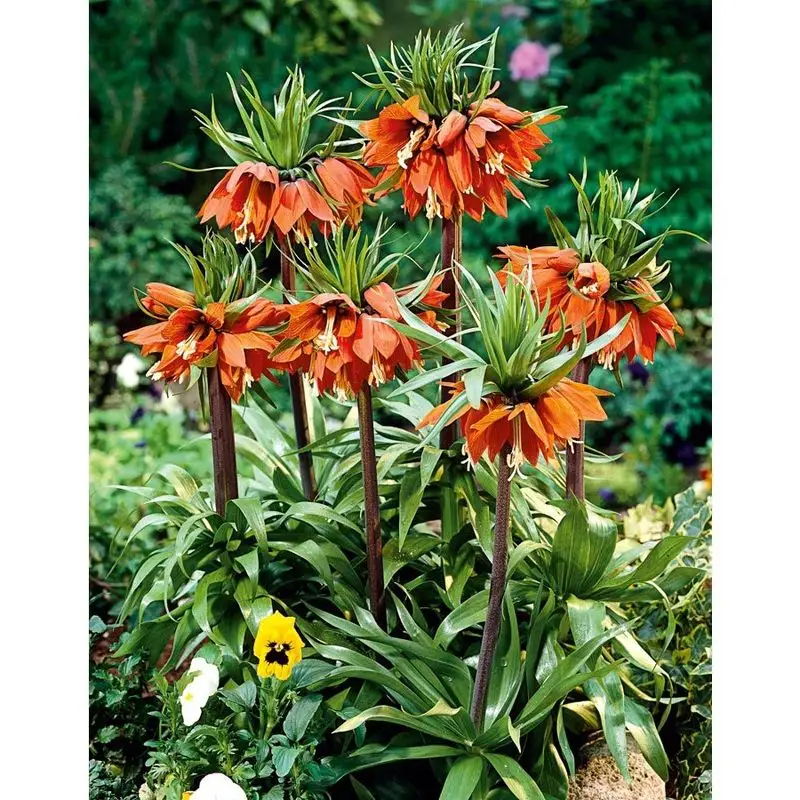
Crown Imperials are striking plants with tall stems and bold, drooping blossoms that make a statement in any garden. Their musky scent is unpleasant to squirrels, effectively keeping them at a distance. Plant crown imperials in well-drained soil and watch them become the focal point of your garden. These perennials are easy to care for and can withstand harsh conditions, offering both beauty and functionality. Their impressive height and vibrant colors create visual interest, while acting as a natural deterrent to garden pests.
Bee Balm
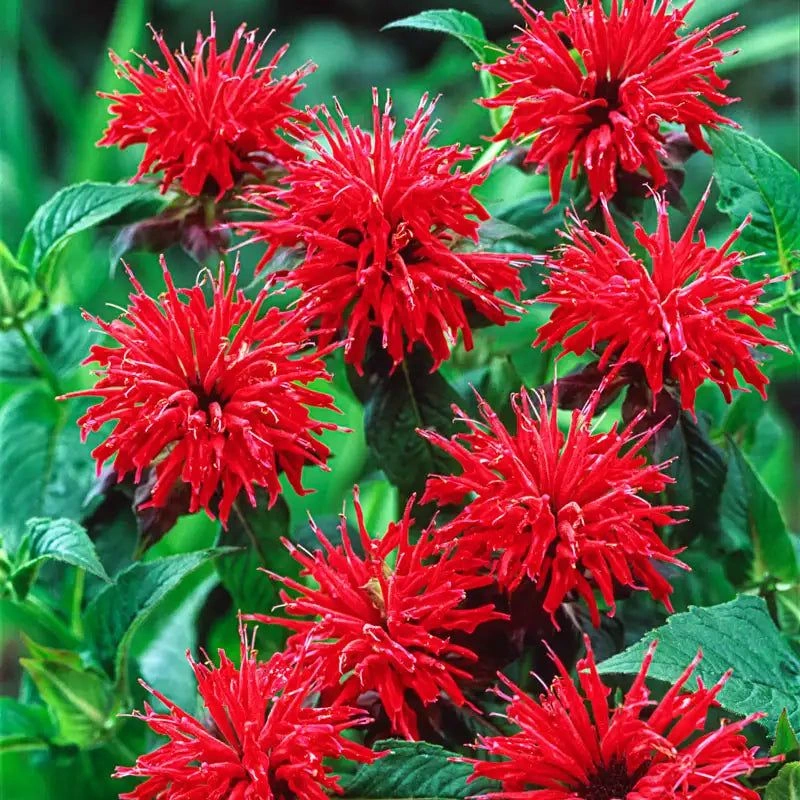
Bee Balm is a showy perennial with vibrant red and pink blooms that add a burst of color to any garden. Its strong aroma is a deterrent to squirrels, while its flowers attract pollinators such as bees and hummingbirds. Plant bee balm in sunny areas to create a lively, colorful border that also doubles as a natural pest repellent. This plant is known for its hardiness and ability to thrive in various conditions, making it a reliable choice for gardeners. Enjoy the lively activity it brings to your garden space.
Chives
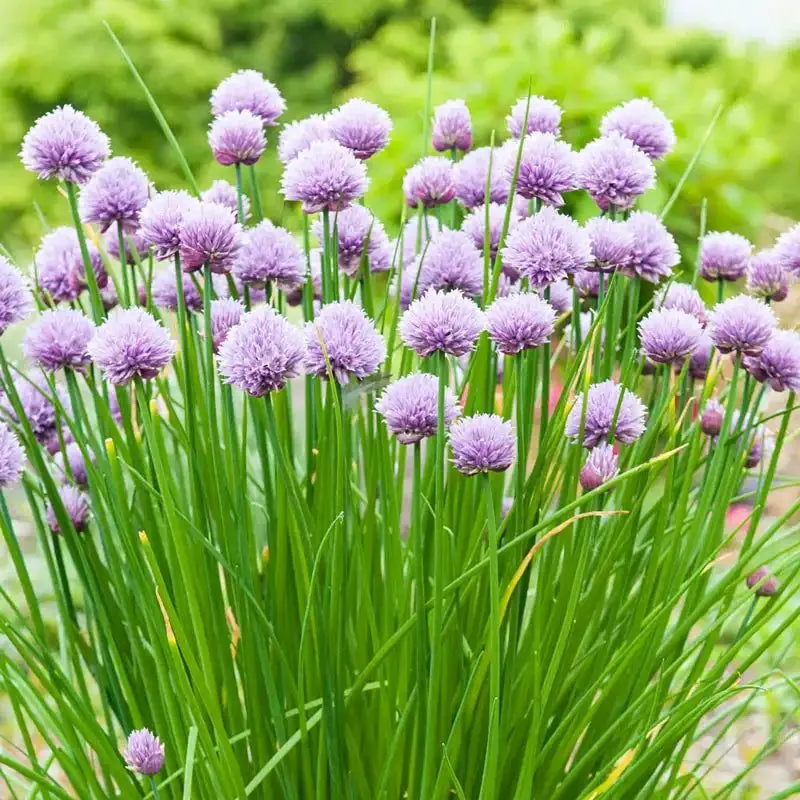
Chives are not only a culinary delight but also a natural deterrent to squirrels. Their mild onion scent is off-putting to these critters, making them a functional addition to garden borders. Plant chives in sunny or partially shaded areas to enjoy their delicate purple blossoms and long, green stems. As a perennial herb, chives return each year, providing continuous pest protection and a fresh supply for your kitchen. Their attractive flowers also support pollinators, enhancing the biodiversity of your garden while keeping it squirrel-free.

